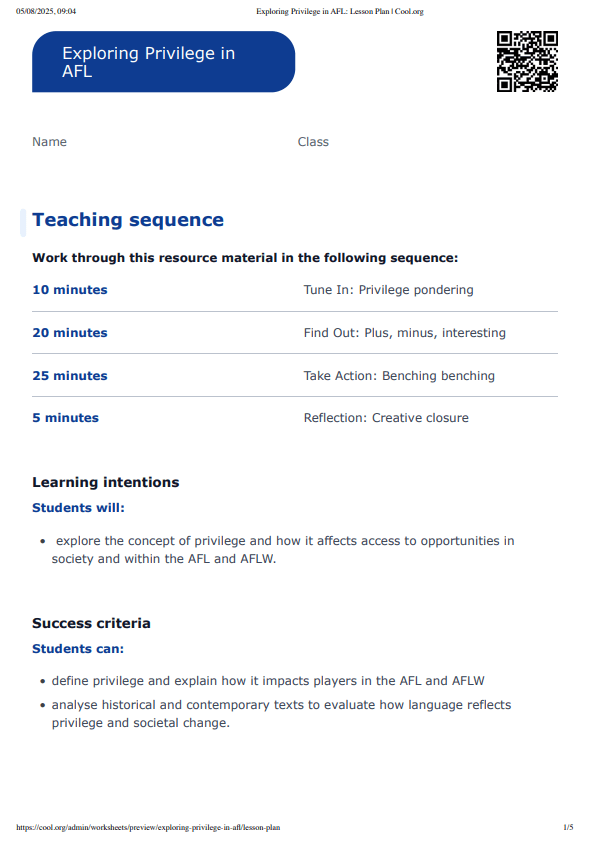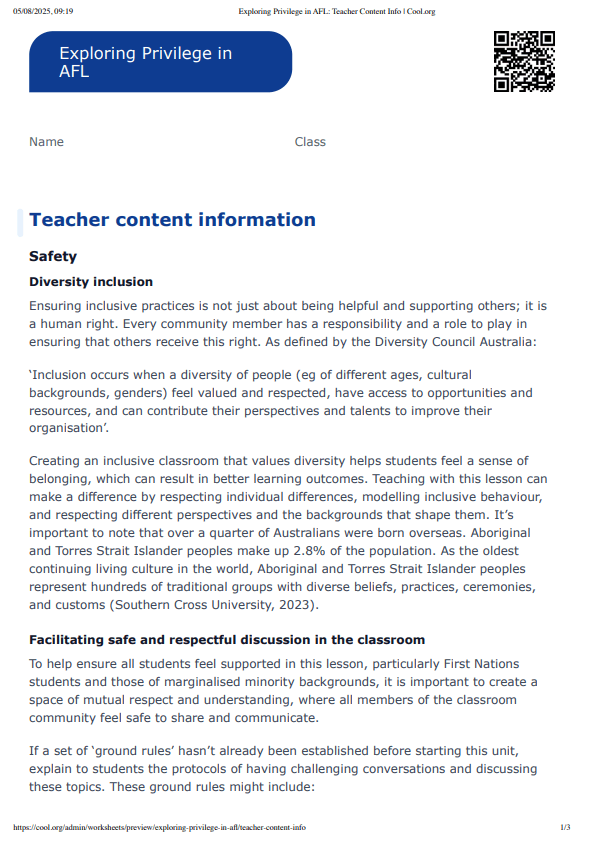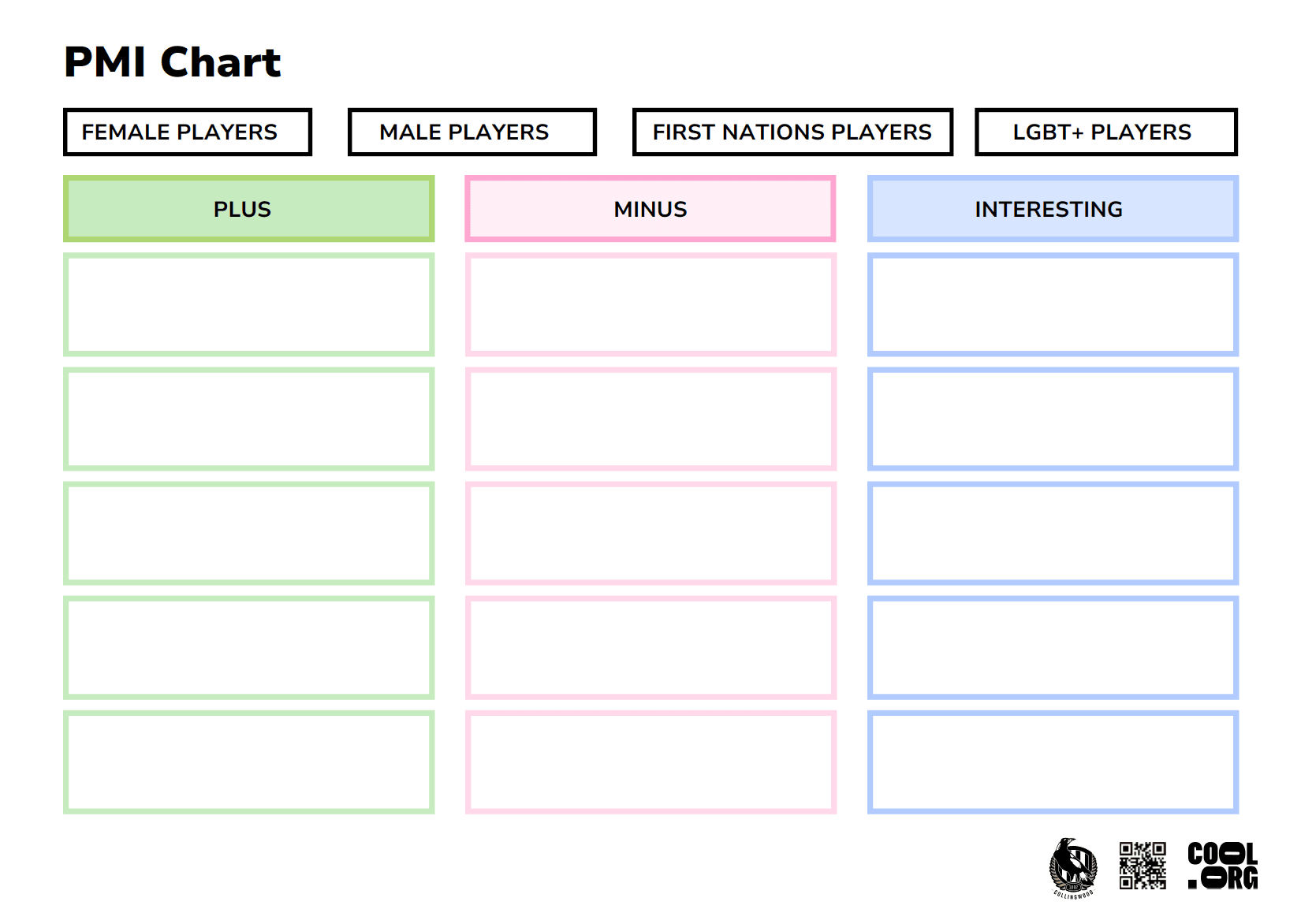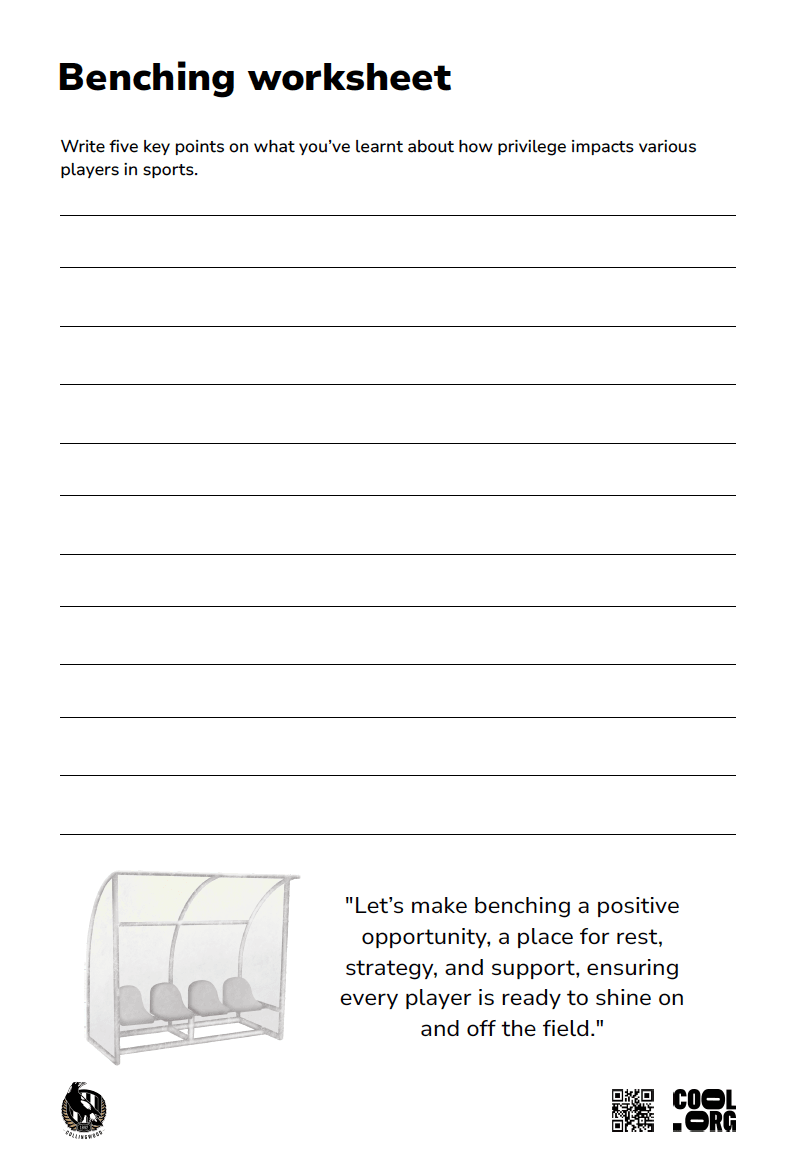Learning intentions
Students will:
- explore the concept of privilege and how it affects access to opportunities in society and within the AFL and AFLW.
Success criteria
Students can:
- define privilege and explain how it impacts players in the AFL and AFLW
- analyse historical and contemporary texts to evaluate how language reflects privilege and societal change.




